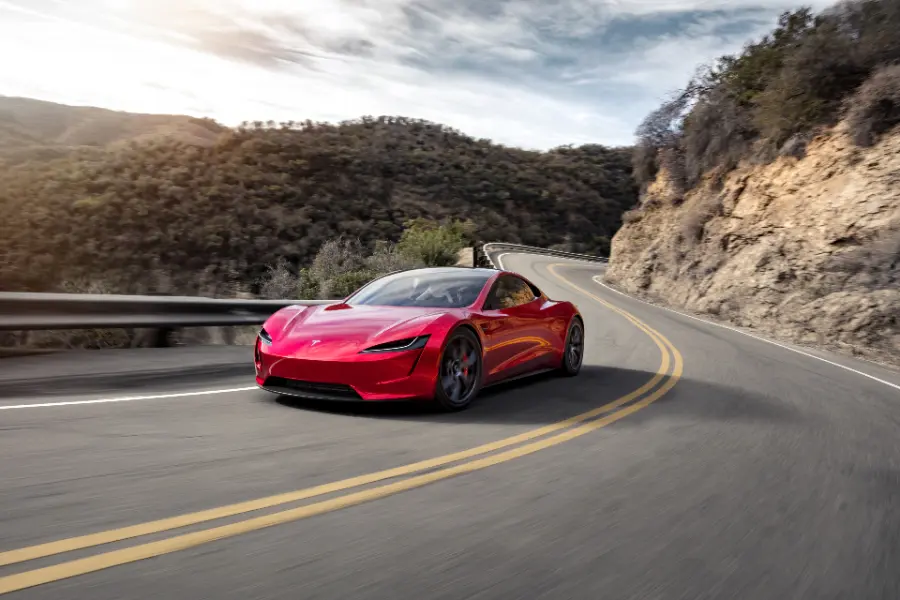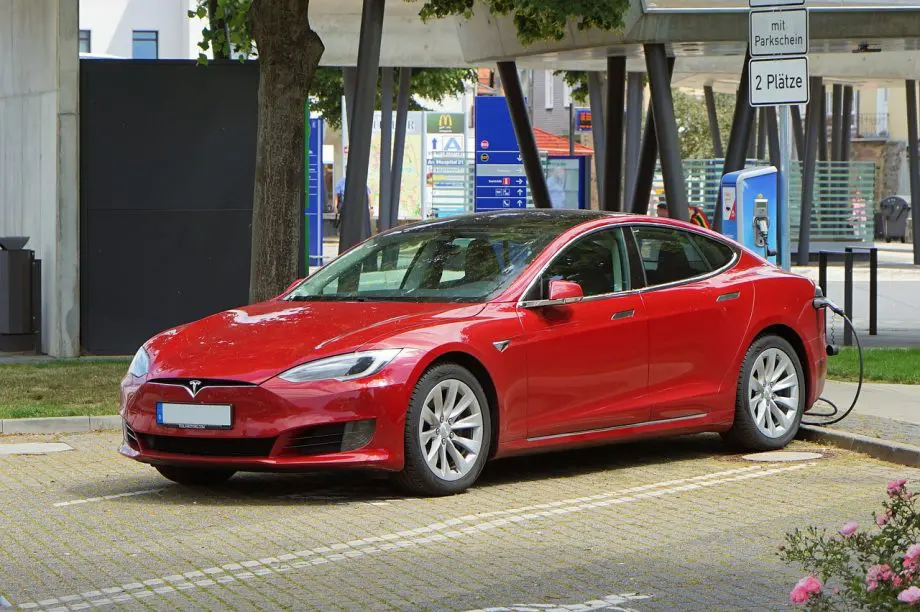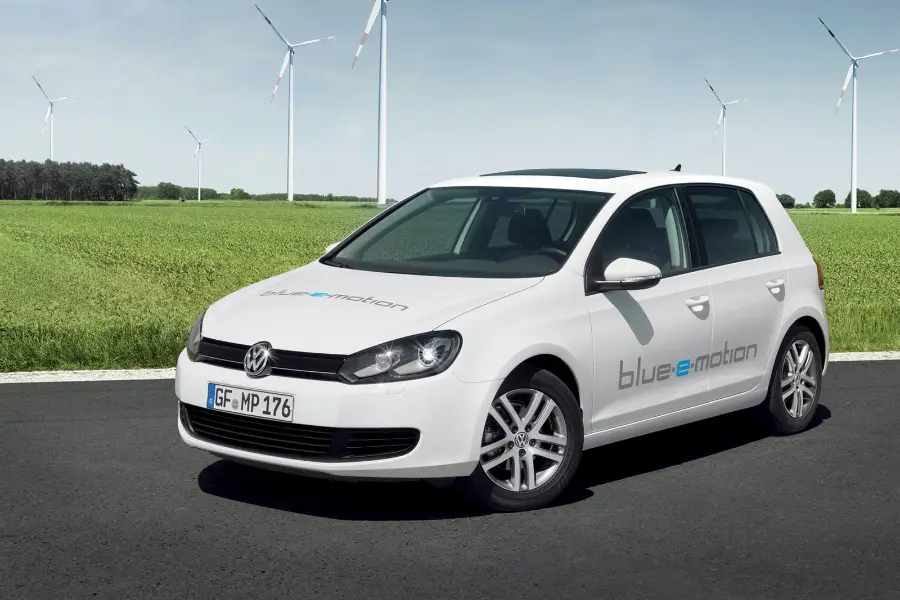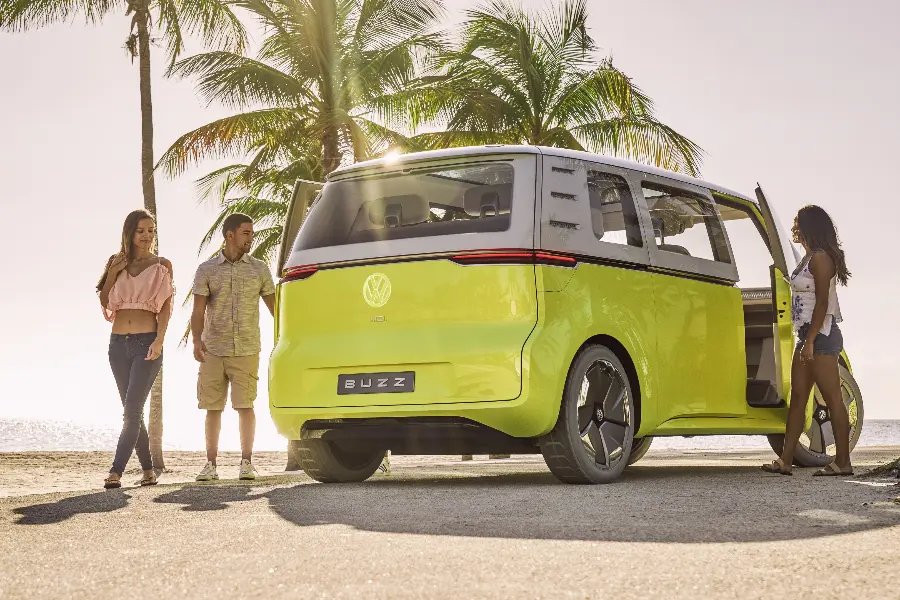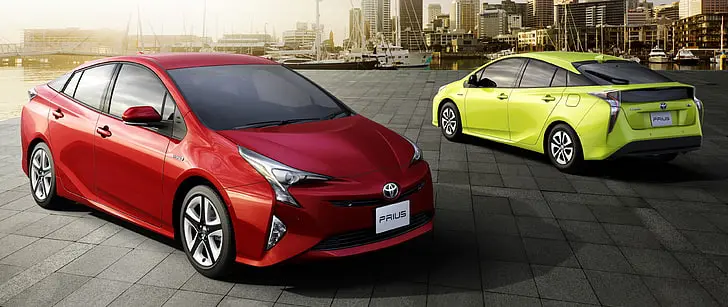
Discover the advantage of electric cars for urban commuting! Save on costs, enjoy convenience, and make a positive impact on the environment. Join the EV revolution today!
Ever wondered about the advantage of electric cars for urban commuting?
Imagine breezing through your daily commute with lower costs, zero emissions, and the satisfaction of being a part of the green revolution.
Electric cars are not just a trend, they’re the future of sustainable urban commuting. Let’s dive in and explore why these high-tech rides are making such a big splash in our cities!
The Advantage of Electric Cars for Urban Commuting
Welcome to the world of electric cars and their incredible advantage for urban commuting!
In this journey, we’ll explore how these innovative machines are transforming city travel, making it more cost-effective, environmentally friendly, and downright convenient.
From understanding their lower operating costs to appreciating their positive environmental impact, we’ll cover it all.
We’ll also delve into the incentives, the challenges, and the solutions that come with owning an electric vehicle.
So, buckle up and get ready to discover why electric cars are the game-changer in the realm of urban commuting!
Brief Overview of Electric Cars
Electric cars, often referred to as EVs (Electric Vehicles), are a marvel of modern technology.
Unlike traditional vehicles that run on gasoline or diesel, electric cars are powered entirely by electricity.
Picture this: a car that you can fuel right at home, just like charging your smartphone. Pretty cool, right?
But it’s not just about convenience. Electric cars are whisper-quiet, incredibly smooth to drive, and they produce zero tailpipe emissions.
They’re a testament to how far we’ve come in our quest for cleaner, more sustainable modes of transportation.
Importance of Urban Commuting
Now, let’s talk about urban commuting. For many of us, it’s a daily ritual. The drive to work, to school, to the grocery store.
It’s an integral part of city life. But with growing urban populations, this daily commute often means traffic congestion, noise, and air pollution.
So are electric cars good for commuting? That’s where the importance of rethinking our urban commuting comes into play.
By shifting to more sustainable commuting options like electric cars, we can make our cities cleaner, quieter, and more enjoyable places to live.
Plus, who wouldn’t love a commute that’s kinder to the wallet and the planet?
Advantages of Electric Cars for Urban Commuting

Ready to dive into the world of electric cars and urban commuting?
There’s a lot to love about electric cars, especially when it comes to city driving.
From cost savings to environmental benefits, electric cars are packed with advantages that make them a top choice for urban commuters.
So, let’s hit the road and explore these benefits in detail, shall we? By the end of this journey, you might just find yourself dreaming about your own electric ride for your daily commute!
Lower Operating Costs
Let’s start with one of the most appealing aspects of electric cars, the lower operating costs.
Who doesn’t love the idea of saving money, right? With an electric car, your urban commute can become significantly more economical.
But how exactly do electric cars help you save? Let’s break it down and explore the factors that contribute to the lower operating costs of electric vehicles. Trust me, your wallet will thank you!
Explanation of Lower Fuel Costs
One of the biggest perks of driving an electric car is the substantial savings on fuel. Instead of stopping at the gas station, you simply plug in your car at home, at work, or at a public charging station.
The cost of electricity used to charge an electric car is typically much less than the cost of gasoline for a similar distance.
Plus, with many utilities offering off-peak or EV-specific rates, you can save even more.
Imagine breezing past the gas station during your commute, knowing you’re saving money with every mile you drive.
It’s one of the many joys of going electric!
Lower Maintenance Costs
Next up, let’s talk about maintenance. Electric cars have fewer moving parts compared to conventional cars.
No engine, no transmission, no exhaust system. This means there’s simply less that can go wrong.
You can say goodbye to oil changes, spark plug replacements, and many other routine maintenance tasks associated with gasoline cars.
Plus, the regenerative braking systems in electric cars can reduce wear and tear on brakes, leading to even more savings.
All of this adds up to lower maintenance costs over the life of the car.
So, not only do electric cars save you money on fuel, but they also help keep your maintenance costs down. It’s a win-win!
Environmental Impact
Now that we’ve talked about the financial benefits, let’s shift gears and discuss another significant advantage of electric cars namely their positive environmental impact.
If you’re someone who cares about our planet and wants to make a difference, you’re going to love this part.
Electric cars offer a fantastic way to reduce our carbon footprint and contribute to a healthier environment, especially in urban settings.
Let’s delve into how making the switch to an electric vehicle can help us drive toward a greener future!
Reduction in Greenhouse Gas Emissions
One of the most significant environmental benefits of electric cars is their ability to help reduce greenhouse gas emissions.
Traditional gasoline-powered cars emit a substantial amount of carbon dioxide, a key contributor to climate change.
On the other hand, electric cars produce zero tailpipe emissions. Even when you take into account the emissions from electricity generation, the overall emissions from electric cars are still typically lower.
And as our electricity grid becomes increasingly powered by renewable energy sources, these emissions will continue to decrease.
So, by choosing an electric car for your urban commute, you’re playing a part in combating climate change. It’s a pretty great feeling!
Contribution to Cleaner Air in Urban Areas
Now, let’s talk about air quality. Urban areas often struggle with air pollution, much of which comes from vehicle emissions.
By switching to an electric car, you’re helping to reduce this pollution.
Electric cars emit no tailpipe pollutants, which means no more nitrogen oxides, particulates, or other harmful pollutants that can affect air quality and human health.
This can lead to cleaner air in our cities, making them healthier and more pleasant places to live and work.
So, not only are you doing your bit for the planet, but you’re also contributing to a healthier community.
Now that’s what I call a win-win situation!
Health Benefits
Beyond the environmental impact, did you know that electric cars also offer significant health benefits? It’s true!
By choosing an electric vehicle for your urban commute, you’re contributing to a healthier city, and in turn, a healthier you.
From reducing noise pollution to improving air quality, the health benefits of electric cars are truly remarkable. Let’s explore these benefits in more detail and see how going electric can lead to a healthier lifestyle.
Reduction in Noise Pollution
First up, let’s talk about noise pollution. It’s a common issue in urban areas, with traffic being one of the main culprits.
Now, imagine a city where cars move almost silently. Sounds peaceful, doesn’t it? That’s one of the benefits of electric cars.
They operate very quietly, significantly reducing noise pollution. This can lead to quieter, more pleasant urban environments.
Plus, less noise pollution has been linked to lower levels of stress and better quality of sleep.
So, by driving an electric car, you’re contributing to a more peaceful and healthier city.
Reduction in Air Pollution-Related Health Issues
Next, let’s tackle air pollution. Poor air quality in cities, often due to emissions from vehicles, can lead to a range of health issues, from asthma to cardiovascular problems.
Electric cars, however, emit no tailpipe pollutants, contributing to cleaner air.
This can lead to a decrease in air pollution-related health issues, particularly in densely populated urban areas.
By choosing an electric car for your commute, you’re not just making a decision that’s good for your wallet and the planet, but one that’s good for your health and the health of your community.
Now that’s a breath of fresh air!
Convenience and Efficiency
Let’s shift gears and talk about another fantastic advantage of electric cars and their convenience and efficiency.
If you’re all about making your life easier and more efficient, you’re going to love this part.
From easy home charging to their performance in stop-and-go traffic, electric cars are designed with the urban commuter in mind.
Let’s dive in and explore how electric cars can make your daily commute not just greener, but also more convenient and efficient!
Ease of Charging at Home or Work
One of the great conveniences of owning an electric car is the ease of charging.
Imagine waking up every morning with a full tank and yes that’s what it’s like with an electric car.
You can simply plug it in at home overnight, and by morning, you’re ready to go. No more detours to the gas station during your busy morning commute.
Plus, many workplaces now offer charging stations for employees, so you can top up while you work.
And with the growing network of public charging stations, you’re never far from a quick charge when you’re out and about.
It’s all about making your life easier!
High Efficiency in Stop-and-Go Traffic
Now, let’s talk about traffic. We all know that stop-and-go traffic can be a real drain on a car’s fuel efficiency.
But here’s where electric cars shine. Thanks to their regenerative braking systems, electric cars can actually recover energy every time you brake, helping to extend your range.
This makes them incredibly efficient in city driving conditions, where stop-and-go traffic is common.
Plus, with an electric car, there’s no idling and no wasted fuel when you’re stuck in traffic.
So, even in rush hour, your electric car is working smart to keep your commute as efficient as possible.
Incentives and Policies
Next on our journey, let’s explore the incentives and policies that make owning an electric car even more appealing.
Governments around the world are encouraging the switch to electric vehicles through various incentives and supportive policies.
From tax credits to access to carpool lanes, these incentives can make owning an electric car not just a smart choice for the environment, but a savvy one for your wallet too.
Let’s delve into these benefits and see how policy can play a role in your decision to go electric!
Government Incentives for EV Ownership
One of the great perks of going electric is the range of government incentives available.
These incentives are designed to make electric cars more affordable and attractive to buyers.
They can include things like tax credits, rebates, and grants. For example, in some countries, you can get a substantial tax credit when you purchase an electric car.
Some local governments also offer additional incentives, like reduced registration fees.
These incentives can significantly lower the upfront cost of buying an electric car, making it an even more attractive option.
Access to Carpool Lanes and Preferential Parking
But the incentives don’t stop at financial benefits. In many cities, electric cars are granted access to carpool lanes, regardless of the number of passengers.
This can make your commute quicker and more efficient. Plus, who doesn’t love bypassing traffic in the carpool lane?
Additionally, some cities offer preferential parking for electric cars, including designated spots in busy areas and at charging stations.
These policies are all about making electric car ownership as convenient and rewarding as possible.
So, by going electric, you’re not just making a great choice for the environment and your wallet, but also enjoying the perks of these supportive policies!
Challenges and Solutions
While electric cars come with a host of benefits, like any new technology, they also come with their own set of challenges.
But don’t worry, the good news is that solutions are already in place for many of these challenges, and others are being actively developed.
From range anxiety to charging infrastructure, we’re going to tackle these issues head-on and explore the solutions that are making electric cars a practical choice for urban commuting.
So, let’s dive in and demystify some of these challenges!
Battery Life and Replacement
One concern that often comes up with electric cars is the lifespan of the battery and the cost of replacement.
Electric car batteries are designed to last for a long time, typically around 8-15 years, depending on the model and usage.
However, like all batteries, they do degrade over time. The good news is that battery technology is improving rapidly, and costs are falling.
Many manufacturers also offer lengthy warranties on their batteries, providing peace of mind for owners.
Plus, some companies are developing battery recycling programs, which could further reduce the cost and environmental impact of battery replacement.
Availability of Models and Options
Another challenge has been the availability of different models and options.
In the early days of electric cars, there were only a few models available, and many of them were quite expensive.
However, this is rapidly changing. Today, almost all major car manufacturers have electric models available, from compact cars to SUVs.
And with more affordable models hitting the market, electric cars are becoming an option for a wider range of buyers.
So, whether you’re looking for a small city car or a spacious family vehicle, chances are there’s an electric car that fits your needs.
Range Anxiety
![]()
Let’s now address a common concern among potential electric car owners and that’s range anxiety.
It’s the worry that your car’s battery will run out of juice before you reach your destination or a charging station.
While it’s a valid concern, the reality is that solutions are already in place and improvements are being made all the time.
So, let’s put those fears to rest and explore how range anxiety is becoming a thing of the past in the world of electric cars!
Explanation of Range Anxiety
Range anxiety is a term that’s often thrown around when discussing electric cars.
It refers to the worry that an electric vehicle has insufficient range to reach its destination and would thus strand the vehicle’s occupants.
This anxiety is considered one of the biggest obstacles to widespread electric car adoption.
It’s a bit like watching the fuel gauge of your gasoline car dip towards empty but with the added concern of fewer places to refill.
However, it’s important to note that this anxiety often stems more from perception than reality.
Current Solutions and Future Improvements
The good news is that solutions to range anxiety are already here, and they’re improving all the time.
For starters, the range of electric cars has increased significantly over the past few years.
Many new models offer ranges that are comparable to, or even exceed, that of traditional gasoline cars.
Then there’s the expanding network of charging stations.
Public charging infrastructure is improving rapidly, with more and more charging stations being installed in cities, along highways, and at places like shopping centers and restaurants.
There are also apps available that can help you locate the nearest charging station, plan your route accordingly, and even reserve a charging spot.
In addition, there are technological advancements like faster charging options and more efficient batteries on the horizon.
These developments promise to make electric cars even more convenient and range anxiety a thing of the past.
So, while range anxiety may seem like a big hurdle now, the reality is that it’s becoming less of an issue with each passing day.
Charging Infrastructure
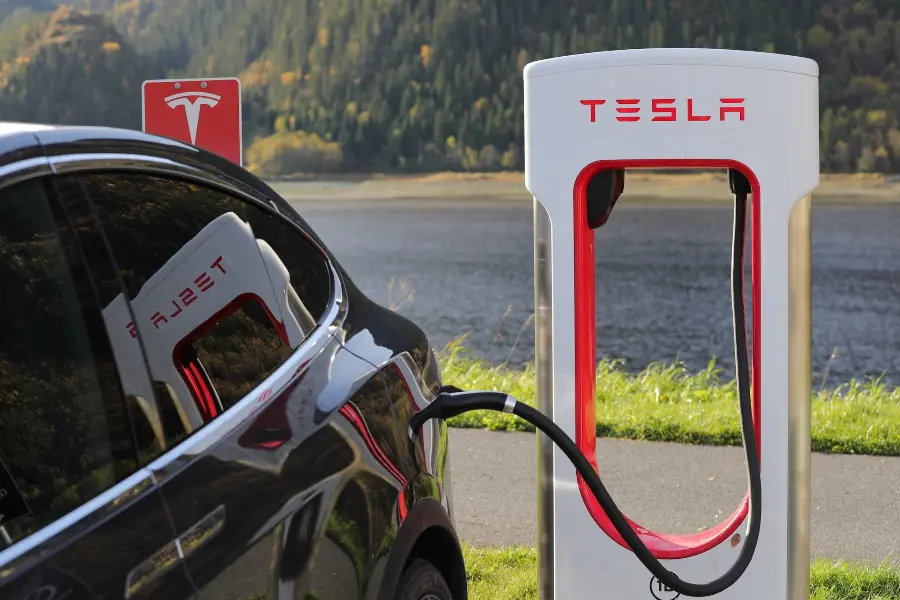
Next on our journey, let’s explore the topic of charging infrastructure. It’s a key aspect of owning an electric car and one that’s seen significant improvements in recent years.
From charging at home to finding a public charging station, the options are expanding and becoming more convenient.
So, let’s plug in and discover how the charging infrastructure is evolving to support the growing number of electric cars on our roads!
Current State of Charging Infrastructure
The charging infrastructure for electric cars has come a long way in recent years.
Home charging is often the most convenient and cost-effective way to keep your electric car charged.
It’s as simple as plugging your car into a standard electrical outlet or a home charging unit.
But what about when you’re on the go? That’s where public charging stations come in.
These are popping up in more and more places, from shopping centers to public parking lots, and even some workplaces.
There are also fast-charging stations that can charge your electric car’s battery to 80% in as little as 30 minutes.
There are now apps and in-car navigation systems that can help you locate the nearest charging station, and in some cases, even reserve a charging spot.
So, while it’s a different routine than stopping at the gas station, the current state of charging infrastructure is making it easier than ever to keep your electric car charged and ready to go.
Future Developments in Charging Infrastructure
Looking ahead, the future of charging infrastructure is bright.
More public charging stations are being installed every day, and they’re becoming faster and more efficient.
Wireless charging technology, which would allow electric cars to be charged simply by parking over a charging pad, is also being developed.
In addition, there are initiatives to incorporate charging infrastructure into existing structures.
For example, some companies are working on technology that would allow streetlights to double as charging stations.
There’s also ongoing research into V2G (Vehicle-to-Grid) technology, which would allow electric cars to feed electricity back into the grid during peak times.
This could help stabilize the grid and potentially provide an additional revenue stream for electric car owners.
So, while the charging infrastructure for electric cars is already quite good, it’s set to become even better in the future.
It’s just another reason why now is a great time to consider an electric car for your urban commute!
Initial Costs
Let’s now tackle a topic that’s often on the minds of potential electric car buyers, the initial costs.
It’s true that electric cars can have a higher upfront cost compared to similar gasoline cars.
However, when you look at the bigger picture, the story starts to change.
From long-term savings to decreasing prices, there’s more to the cost of an electric car than meets the eye.
So, let’s dive in and explore the financial aspects of owning an electric car!
Higher Upfront Cost of Electric Cars
It’s true that electric cars can have a higher purchase price compared to their gasoline counterparts.
This is largely due to the cost of the batteries, which are the most expensive component of an electric car.
However, it’s important to remember that the purchase price is just one part of the total cost of owning a car.
Long-Term Savings and Decreasing Prices
When you factor in the lower operating and maintenance costs, the total cost of ownership of an electric car can be lower than a gasoline car.
You’ll save on fuel, maintenance, and potentially even insurance and parking.
Plus, there are the government incentives we talked about earlier, which can help offset the higher purchase price.
In addition, the cost of electric cars is coming down. As technology improves and economies of scale kick in, the prices of electric cars are expected to continue to decrease.
Some experts predict that the upfront cost of electric cars could be on par with gasoline cars within a few years.
So, while the higher upfront cost can be a hurdle, it’s worth considering the long-term savings and the direction that prices are heading.
When you look at the big picture, an electric car can be a smart financial decision.
Are Electric Cars Good For Commuting FAQs
Now that we’ve covered the ins and outs of electric cars and their benefits for urban commuting, let’s tackle some frequently asked questions.
These are the questions that often come up when people consider making the switch to an electric car.
From their suitability for city driving to the benefits they offer, we’ve got the answers to your burning questions.
So, let’s dive in and clear up any lingering doubts you might have about electric cars!
Q: Are electric cars better for city driving?
A: Absolutely! Electric cars are ideal for city driving for several reasons.
They’re highly efficient in stop-and-go traffic thanks to regenerative braking systems.
They produce zero tailpipe emissions, contributing to cleaner air in urban areas.
Plus, they’re quiet, reducing noise pollution. And with the ability to charge at home or work, you can start each day with a full tank.
Q: Are electric cars good for commuters?
A: Yes, electric cars are a great choice for commuters. They offer lower operating costs, with savings on both fuel and maintenance.
Many electric cars have a range that’s more than sufficient for the average daily commute.
Plus, with the growing network of public charging stations, longer trips are becoming easier all the time.
Q: What are 5 advantages of electric cars?
A: There are many advantages to electric cars, but here are five key ones:
1. Lower Operating Costs: Electric cars offer significant savings on fuel and maintenance.
2. Environmental Benefits: They produce zero tailpipe emissions, helping to reduce greenhouse gas emissions and improve air quality.
3. Health Benefits: By reducing air and noise pollution, electric cars contribute to healthier urban environments.
4. Convenience: With the ability to charge at home, you can start each day with a full battery. Plus, electric cars are smooth and quiet to drive.
5. Incentives: Many governments offer incentives like tax credits and rebates to make electric cars more affordable.
Q: What are the benefits of electric cars on the community?
A: Electric cars offer several benefits to the community.
They help to improve air quality by reducing emissions, which can lead to health benefits for residents.
They also contribute to quieter cities by reducing noise pollution. Plus, by reducing the demand for gasoline, they can help to decrease our reliance on fossil fuels.
Finally, the growth of the electric car market can lead to job creation in areas like charging infrastructure and battery manufacturing.
The Advantage of EVs for Urban Commuting Conclusion
As we near the end of our journey exploring the advantages of electric cars for urban commuting, it’s time to pull over and reflect on what we’ve learned.
From their lower operating costs to their environmental and health benefits, electric cars offer a compelling alternative to traditional gasoline cars.
But there’s more to the story than just the benefits. Let’s wrap things up and look at the bigger picture, including the challenges, the solutions, and the exciting future of electric cars!
Recap of the Advantages of Electric Cars for Urban Commuting
We’ve covered a lot of ground, so let’s take a moment to recap the key advantages of electric cars for urban commuting.
• First, they offer lower operating costs, with savings on both fuel and maintenance.
• They also have significant environmental benefits, reducing greenhouse gas emissions and contributing to cleaner air in our cities.
• Health benefits are another major plus, with electric cars helping to reduce both noise and air pollution.
• And let’s not forget about the convenience and efficiency they offer, from easy home charging to their performance in stop-and-go traffic.
• Finally, there are the incentives and supportive policies that make owning an electric car even more appealing.
Future Outlook
Looking ahead, the future of electric cars is bright. The technology is improving rapidly, with longer ranges, faster charging, and more model options becoming available.
The charging infrastructure is expanding, making it easier to own and drive an electric car.
And as more people make the switch to electric, we’ll see even greater environmental and health benefits.
While there are still challenges to overcome, the progress made so far is promising.
With continued innovation and supportive policies, electric cars are set to become an increasingly common sight on our city streets.
So, whether you’re considering an electric car for your urban commute or just curious about the benefits, there’s never been a better time to go electric and electric cars are perfect for commuting.

